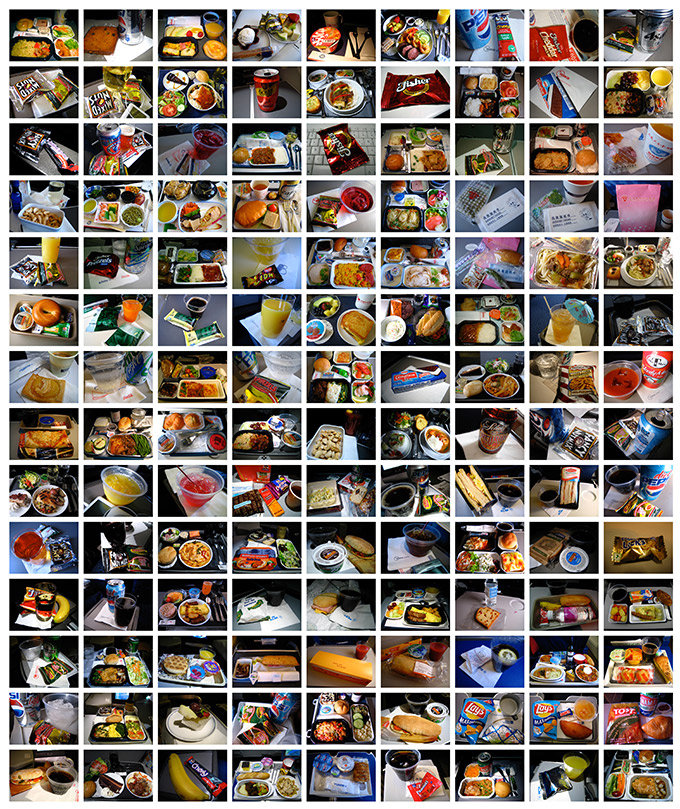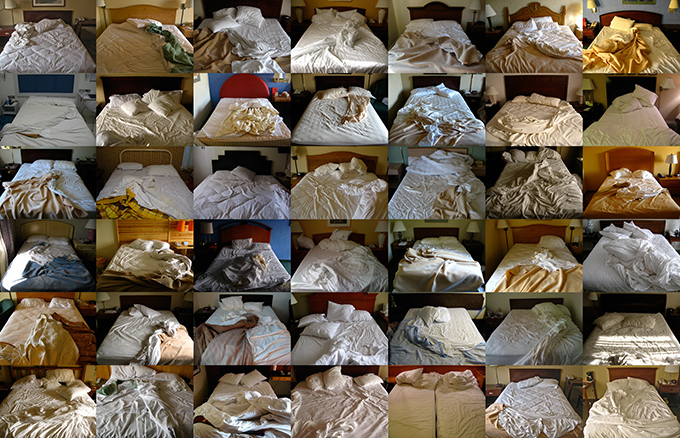
Hasan Elahi. Altitude v3, c-print, 2007.
I’m convinced that government surveillance will not go away regardless of how much we may object to it – we’re too far in to get out. The court order to make Apple unlock a shooter’s iPhone is just the tip of the iceberg; myriad technologies collect the data of our daily lives, and avoiding this would be not only inconvenient but also out of sync with the times we live in.
Algorithms are only getting smarter, and online movements easier to track. So it’s time for a paradigm shift: going forward, the best way to restore privacy will be to give it up and instead embrace total transparency. We must stop thinking of surveillance (derived from the French verb surveiller, “to watch over”) as something that can only be used against us and instead embrace it as a tool for sousveillance (watching from below) – that is, watching the watchers.
We may want to hang on to an earlier, simpler version of privacy, but it no longer exists.
As recently as the early aughts, it might have been possible to avoid surveillance cameras, but that’s no longer the case. Amazon knows what we want to buy before we know it ourselves. Target knows pregnant teenagers better than their parents do. As difficult as it may be to accept, we need to adapt to this new reality and figure out how to live within it.
Total transparency might seem like a drastic measure, but it isn’t such a harebrained idea. For the past 14 years I’ve been tracking myself in the name of national – and personal – security, and I recommend that everyone take this up. Instead of fearing surveillance, I’ve embraced it; I’ve protected myself from unwanted government scrutiny by making my entire life and whereabouts publicly accessible. There’s a strange sense of security in knowing that at any moment there are thousands of eyes on me, and if I were to disappear, at least a few would know that something was wrong.
In his 1998 nonfiction book The Transparent Society, science fiction writer David Brin described two parallel cities under surveillance. Everything is monitored in both cities, but in “city number one” all the information goes to the police, and in “city number two” the information is broadcast to everyone. It’s an eerie premonition of our options today. We are already living in city number one – data is collected and used in ways that the average person is unaware of or understands only vaguely.
Ted Cruz’s campaign app mines his supporters’ phones for location data and information about their contacts, but he’s not volunteering that kind of access to his own movements and relationships.
It’s not a question of whether this situation makes things better or worse than they were before – the fact is that our fundamental definition of privacy has already changed. We may want to hang on to an earlier, simpler version of privacy, but it no longer exists. So instead of pining for an impossible time before surveillance, let’s counter it. Let’s dissolve the boundaries between public and private information even further. There is too much at stake for all this information to be in only a few elite hands.
One way total transparency could work for the average person is holding politicians to a higher standard. It’s not uncommon for candidates to release their tax returns. Why do we feel that only financial information is important? We already know that they’re rich. How about requiring candidates to share their phone location data with the voters, giving us information about where they’re going and who they’re meeting?
John Kasich has already denied access to his calendar, citing “security” and “executive privilege”. Ted Cruz’s campaign app mines his supporters’ phones for location data and information about their contacts, but he’s not volunteering that kind of access to his own movements and relationships. This kind of data has a much more significant impact on our democracy than their tax returns. After all, if their ambition is to represent all of us – and to oversee the agencies and programs that partake so freely of our information – don’t we have the right to know what they’re doing as well?
In the words of Justice Louis Brandeis, “Publicity is justly commended as a remedy for social and industrial diseases. Sunlight is said to be the best of disinfectants; electric light the most efficient policeman.” These words were written more than 100 years ago. I think it’s time we revisit them.

Hasan Elahi. Stay v1, c-print, 2011
This piece, commissioned by Creative Time Reports, has also been published in The Guardian.

